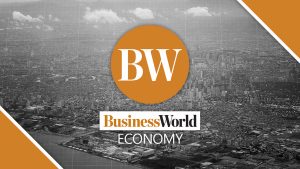IN BRIEF:
• Nearly half (49%) of global respondents believe that compliance with their organization’s standards of integrity has improved over the past two years, marking a 7% increase from 2022.
• Unethical mindset is more dominant in the upper echelons of organizations, with 67% of board members admitting they would consider unethical actions for their own benefit compared to only 25% of employees.
• Recent research indicates that corporate fraud shaves approximately 1.6% off a company’s equity value each year. In monetary terms, that equates to a staggering $830 billion.
The current climate of persistent macroeconomic, geopolitical, and market volatility, coupled with stringent regulatory scrutiny, continue to put the moral compass of organizations to the test. These global conditions underscore the critical importance of the values businesses uphold, particularly trust and integrity.
Trust serves as a significant competitive advantage, particularly when market unpredictability challenges business resilience. Without trust from employees, customers, suppliers, and investors, an organization’s future viability is jeopardized.
At the same time, companies rooted in integrity ensure long-term sustainability by adhering to ethical practices, which reinforce their brand and operational stability. A lack of integrity erodes trust, leading to significant operational and strategic challenges.
The interplay between these two raises a critical question: “How can trust endure without integrity?” This query forms the crux of the EY Global Integrity Report 2024, which surveyed over 5,400 respondents across 53 countries and territories.
On the upside, 49% of global respondents believe that compliance with their organization’s standards of integrity has improved over the past two years, marking a 7% increase from the EY Global Integrity Report 2022.
However, 38% of global respondents acknowledge a willingness to engage in unethical behavior to advance their career or remuneration. This pervasive mindset creates substantial risks that could lead to various adverse impacts within an organization.
The cost of low corporate integrity is high. Specifically, corporate violations in the US and the UK incurred penalties totaling $1 trillion, as a result of half a million infractions between 2010 and 2023.
This article explores actionable insights from the EY Global Integrity Report 2024 and identifies human-centered approaches that leaders can use to build an integrity-first culture within their organizations.
THE CURRENT STATE OF INTEGRITYDespite improved perceptions of organizational standards of integrity, companies continue to grapple with significant incidents and violations. The EY report highlights that 20% of companies acknowledge experiencing major integrity breaches, such as fraud, data privacy or security incidents, or regulatory compliance violations, within the past two years.
Notably, among those reporting significant integrity incidents, over two-thirds indicate the involvement of third parties.
An analysis of over 500,000 corporate violations from 2010 to 2023 reveals that certain financial and employment violations, including accounting deficiencies, AML deficiencies, tax violations, labor standards, workplace safety, and consumer privacy issues, have become 2 to 10 times more frequent since 2010.
Conversely, there has been a notable decline in violations related to employee compensation, public safety, banking, and environmental issues. However, progress remains limited in addressing anti-competitive behavior, discrimination, and whistleblower retaliation.
EMPLOYEES’ APPROACH TOWARD INTEGRITYAlthough a majority of employees (58%) take a principled approach to integrity, there remains a substantial proportion (42%) who may compromise these standards under certain conditions.
In this dichotomy, the report shows that potentially compromised employees have a more negative view of their organization’s compliance environment. They are nearly three times more likely to say that unethical conduct is ignored within their teams, and more than five times more likely to say that unethical conduct is ignored within their organization’s supply or distribution chain.
LEADERS’ INTEGRITY DILEMMAAn unethical mindset towards career or pay is predominant in the upper echelons of organizations, with 67% of board members admitting they would consider unethical actions for their own benefit compared to only 25% of employees.
Moreover, 47% of board members and 40% of senior management have observed actions within the past two years that could damage their organization’s reputation if made public, yet no internal response was taken. This lack of action highlights a critical gap in ethical oversight and accountability.
WHAT BREEDS MISCONDUCTThe survey identifies several root causes of integrity incidents globally, including failure of financial processes and controls (27%), lack of internal resources to manage compliance and integrity activities (27%), employees not understanding policy and requirements (26%), and lack of appropriate tone from senior leadership (25%).
Equally significant, 45% of global respondents who reported integrity incidents attribute them to poor leadership tone or management pressure. This issue is compounded by the apparent reluctance among leaders to address misconduct.
Such factors contribute to an environment conducive to misconduct, emphasizing the need for robust controls, resources, and leadership commitment to foster a culture of integrity.
HIGH COST OF LOW INTEGRITYMisconduct is an unpleasant reality, surfacing even within the most ethical organizations. Corporate infractions come at a high cost — not just in resources spent on internal investigations and remediation but also in fines and penalties paid to government regulators.
For instance, recent research indicates that corporate fraud shaves approximately 1.6% off a company’s equity value each year. In monetary terms, that equates to $830 billion in 2021 alone.
But the costs extend beyond the financial. A top-down, all talk, no walk mentality erodes trust both within the organization and in the public eye, placing the company’s reputation and financial health in jeopardy.
BUILDING AN INTEGRITY-FIRST CULTUREEmbracing the following integrity-first approaches — which put the right programs in place to drive behavior to create a strong culture and a strong belief in their commitment to integrity — can help organizations keep pace with evolving regulations and increasing societal expectations:
Lead from the top. Integrity can’t be built or sustained with all talk and no action. Organizations need to focus on preventing and addressing misconduct by starting from the top. Moreover, leaders need to listen and practice what they preach to instill integrity further down the line. Words alone won’t inspire integrity; leadership action is a must.
Design and implement a structure to execute strategy. To prevent unethical actions from the top down, organizations must implement robust governance structures within their integrity programs and strategies. Breaking down silos is also crucial to encourage a “speak up” culture against any misconduct.
Strengthen a culture of integrity across the organization. Organizations must recognize that integrity is a collaborative endeavor, not merely a stand-alone function. Embedding compliance directly into operations—from new business development to vendor payments—transforms corporate policies into actionable workflows.
Boost awareness, training and communication. The report indicates that fewer than 47% of management teams frequently communicate to their employees the importance of behaving with integrity. Making the rationale behind policies crystal clear fosters a resilient organization capable of thriving in both good and bad times.
Create a virtuous circle of integrity. In times of rapid change and difficult market conditions, maintaining, let alone enhancing, corporate integrity can seem daunting. But it is precisely in these challenging times that integrity must not only be preserved but also prioritized.
This article is for general information only and is not a substitute for professional advice where the facts and circumstances warrant. The views and opinion expressed above are those of the author and do not necessarily represent the views of SGV & Co.
Roderick M. Vega is the Forensic and Integrity Services Leader of SGV & Co.





